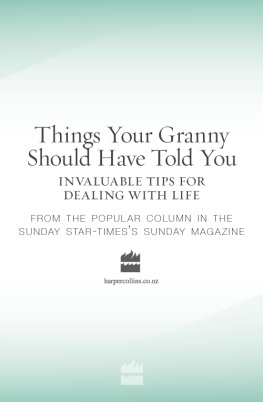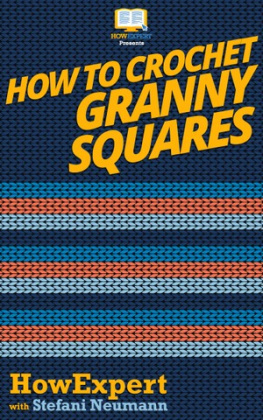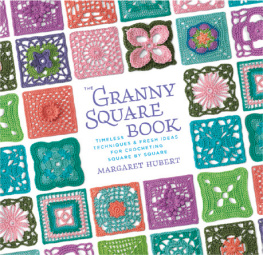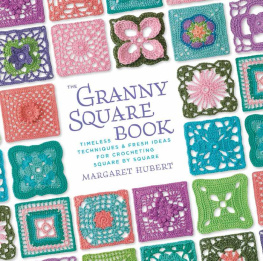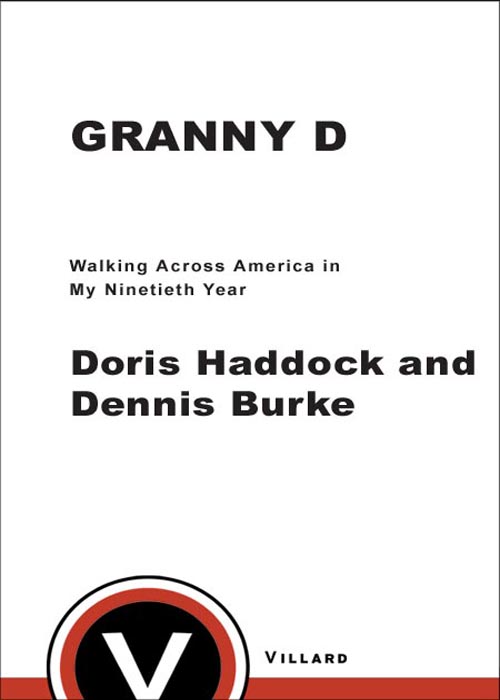
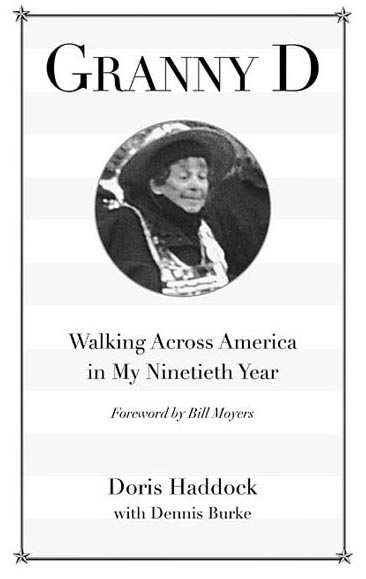
Contents
Dear friends along the road:
Thank you for the part you played in
making my trek possible.
If this book were a thank-you letter,
it would require ten volumes
to mention every kindness.
And a special thanks to Bonnie Riley,
who said, Well, Doris, what are you going to
do about it?
Doris
Acknowledgments
I would like to thank the thousands of people who posted messages to the public website GrannyD.com, whose comments greatly encouraged Doris on her hardest days, and whose lively thoughts have improved these pages. My greatest thanks must be reserved for Doris, who sat down for two hours each evening to write down her days adventures. This she did after her younger walking companions had long since collapsed in total exhaustion for the night. Those notes became this book. Her resolution to write every night, and her walking itself, which she continued despite any pain or turn of weather, were lessons in character and patriotism for all of us who met her and fell in love.
Dennis Burke
Foreword
by Bill Moyers
The soul of a citizen shines through these pages.
Doris Haddock set out to walk across America to protest the betrayal of democracy by money in politics. That mission she accomplished; no one can doubt the source of her intense, disciplined outrage. But understatement is the gift of this book, and there are so many interwoven stories and anecdotes about life, love, and friendship, you almost forget that this is the tale of a ninety-year-old woman who walked ten miles every day for a cause she believed in. Because she never dwells on the pain or discomfort, you sometimes fail to appreciate the wonder of what she did. Not only did she walk with blistered feet and bruised muscles, she did so in some of the harshest environments in our land.
To be sure, the novelty of a nonagenarian innocently protesting corruption by walking at a snails pace across this nation lights up all sorts of meters for newspaper editors and broadcast producers. For most of us, it is this simplified Granny D that we have gotten to knowsecondhand, filtered through the media.
But then you pick up her book, read her speeches, and see the trials through which she passed. This is no innocent grandmother naively protesting a cause because she misses the good old days. Granny D is a seasoned activist, an eloquent speaker and writer, and an acute observer of the world around us. Who I am is an old reformer, she told a recent gathering of business executives. I have been involved in reform fights through most of my adult life, but I have saved the most important for lastthe fight to establish true political democracy in this country.
About her trip she had her doubts. Chasing my hat again through cacti, the idea of walking across the United States at my age seemed a less than perfect idea. I was being foolish; the country is too big for an old New Hampshire woman with arthritis and emphysema and parched lips and a splintered hat. But since her activist days in the 1960s, she had watched American politics change. Back then, we were able to appeal to the sense of fair play of U.S. senators and representatives. They listened to our appeal and made a decision they thought best. They did not have to consult with their campaign contributors, nor did they care that we had not given money to them. It was not a perfect world, but the back-room scandals we heard about then, where cash was traded for votes, are now the front-room norm. There is no room for regular citizens and there is no shame. With other members of the Tuesday Morning Academya womens group in New Hampshireshe had probed the issue of money and politics for several years. Now she decided to walk and talk about how our democracy is being purchased from under us.
At first the national media paid little attention, dismissing her as an eccentric and her journey as a stunt. But no sooner had she started collecting petition signatures on a Pacific beach, before heading east toward the Mojave desert, than ordinary people perked up and paid attention, moved by what this cheerful, straight-talking Yankee was saying.
It was the simple truth:
If money is speech, then those with more money have more speech, and that idea is antithetical to a democracy that cherishes political fairness. It makes us no longer equal citizens.
A flood of special interest money has carried away our representatives, and all that is left of themat least for those of us who do not write $100,000 checksare the shadows of their cardboard cutouts.
It is said that democracy is not something we have, but something we do. But right now, we cannot do it because we cannot speak. We are shouted down by the bullhorns of big money. It is money with no manners for democracy, and it must be escorted from the room.
The hundreds of thousands of our dead, buried in rows upon rows in our national cemeteries, sacrificed their lives for the democracy of a free people, not for what we have today. It is up to each of us to see that these boys and girls did not die in vain. Thats just how serious this message is.
On and on she walked and talkedthrough the blowing sands of Arizona, past the reddish hills of New Mexico, up the seven-mile steep incline through a southernmost pass of the Rocky Mountains toward the vast plains of West Texas. Like tom-toms, local newspapers and radio stations signaled her advance. Cars began honking, thumbs went up. Children from their playground monkey bars chanted: Gran-ny! Gran-ny! Frat boys knelt around her on a street corner in Tucson and, singing, made her a Sweetheart of Sigma Chi. Swarthy tattooed bikers on their Harley-Davidsons offered her protection on the highways. Strangers took her in, providing food, shelter, and encouragement. I had found so many new friends along the road, she writes, and they had entrusted me with so much of their hearts, that I was not feeling the least bit alone anymore. She was even greeted in Parker, Arizona, by the Marine Corps Marching Band! How to explain it all? When you fully dedicate yourself to a good mission, she writes, the floodgates of heaven open up for you. If you can make a creative crack in the crust of the worlds deadly abstractions, the divine will rush up, bringing great bounty with it.
That bounty still did not include the national media. ABCs Good Morning, America scheduled a segment with her but scrubbed it at the last minute in favor of a feature on wedding dresses. Fox Network News said they wanted to report on her arrival in Tombstone, then canceled. The mayor, city council, and a group of citizens turned out anyway, in Old West garb, but Doris Haddock had been reminded what it is to be a soft-news story in a hard-news world.
Nonetheless, her message, anything but soft, took hold in increasing numbers of hearts and minds. People lined up to listen, ask questions, and volunteer their own stories of political abandonment. They told of hitting the wall that connects HMOs and drug companies, all in cahoots with crooked politicians. They talked of corporations using their overpowering capital and political influence to annihilate small businesses, turning our towns into their colonies. They described writing urgent petitions to their representatives in Washington only to receive form letters in return. At night, Granny D filled her journal with their stories.
Then, one day, early in her Texas walking, The New York Times
Next page

